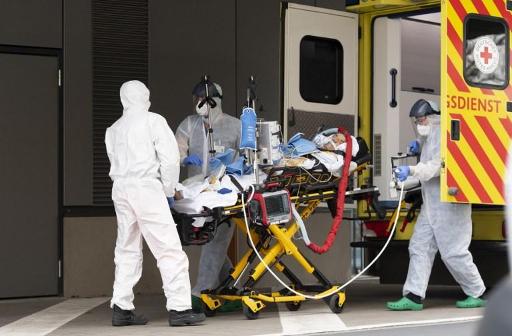More than 30,000 people have died in Europe after contracting the new coronavirus (Covid-19), making it the worst-affected continent by the pandemic.
Drawing from official figures as of Wednesday, the AFP news agency said that the pandemic had killed 30,063 people in Europe, which in March was declared the new epicentre of the pandemic.
Globally, the deadly virus has killed 42,404 people, according to data by the Johns Hopkins University, which puts the number of recovered patients at some 170,000, a majority in China and in Spain.
More than two-thirds of the deaths were recorded in Italy and Spain, the Continent's hardest-hit countries, where the death tolls surged on Wednesday to 12,428 and 8,464, respectively.
In Spain, growing rates of infection among medical staff have raised concern over the capacity of its health care system, already buckling under a surge of hospitalisations.
Related News
- Coronavirus: 12-year-old girl died on Monday
- Coronavirus: first UZ Brussel patient on ventilator may leave intensive care
- Coronavirus: Belgium reaches 12,775 confirmed cases
Both countries' death toll topped that of the source of the pandemic in China, where the government put the death count at 3,316, — a figure which has been disputed by citizens and prompted accusations that China was downsizing the scale of the outbreak.
With over 50,000 confirmed cases, France is Europe's third-most affected country, where 9,522 deaths have been counted, including that of a 16-year-old girl, one of the youngest victims of the virus at a global scale.
A 12-year-old Belgian girl has been reported as Europe's youngest victim of the pandemic, with officials describing her death as "rare" and "upsetting" for the medical and the scientific community.
Her death came after officials in Portugal announced the virus had killed a 14-year-old boy and coincided with the announcement in the UK of the death of a 13-year-old boy.
A total of 12,775 cases have been confirmed in Belgium and 705 deaths reported, according to the latest official figures on Tuesday.
Gabriela Galindo
The Brussels Times

